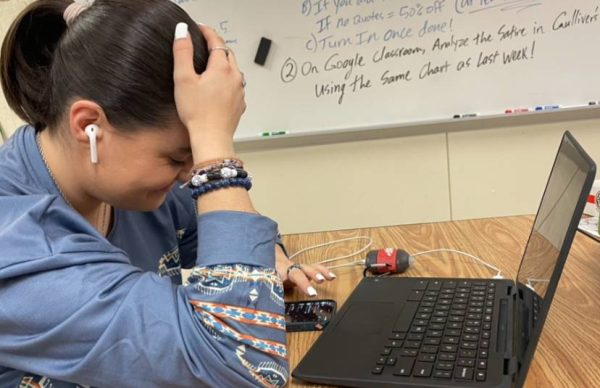Climate change and us
Local fish ruled extinct by U.S. Fish and Wildlife Service

The San Marcos Gambusia, one of the 23 species now considered extinct, was native to central Texas.
November 15, 2021
The U.S. Fish and Wildlife Service recently declared 23 species extinct, including a fish native to this area.
As global leaders wrap up their COP 26 summit in Glasgow, Scotland, the reality of climate change and pollution strikes close to home.
The San Marcos Gambusia is a fish that could only be found in the San Marcos River. The last time the fish was collected was in 1983 and had been protected under the Endangered Species Act, until a few weeks ago. U.S. Fish and Wildlife Service proposed to move it and 22 other species 23 species to the extinct list.
About the same time, leaders from more than 18 countries gathered for the COP 26 summit to solve the climate crisis. Climate activists were eager to see the most influential leaders in the world take action to stop the climate problem.
India’s Prime Minister Narendra Modi already pledge to reach net-zero carbon emissions by 2070, a move recognized by environmental science teacher Samual Pippert.
“If you are the head of a country and you know that your country is creating a lot of greenhouse gases, you need to change something,” Pippert said.
Global warming and climate change affect the livelihoods of people around the world and play a role in destroying habitats of endangered animals and plants.
“There are things we can do for sure,” Pippert said, “obviously using the energy that you need and not more.”
Congress passed The Endangered Species Act in 1973 to protect species that were in danger of extinction. Globally, 902 species have been declared extinct.
“Earth goes through these fluctuations all the time, but I think we’ve expedited it and made it go by a lot quicker than in the past,” Pippert said
Small everyday actions, such as throwing away trash and turning off the water, can make a difference and possibly prevent more animals from going extinct.
“Moving forward is great,” Pippert said, “but it does come at a cost.”















